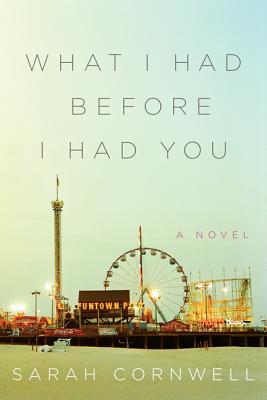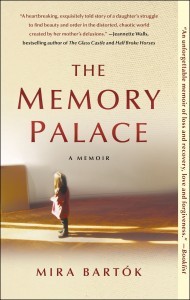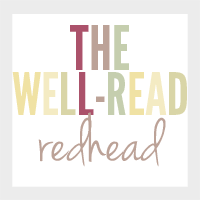Title: What I Had Before I Had You
Author: Sarah Cornwell
Publisher: Harper
Publication Date: January 7, 2014
Source: copy received for honest review through TLC Book Tours
Plot Summary from Goodreads:
In What I Had Before I Had You by Sarah Cornwell, a woman must face the truth about her past in this luminous, evocative literary novel of parents and children, guilt and forgiveness, memory and magical thinking, set in the faded, gritty world of the New Jersey Shore.
Olivia was only fifteen the summer she left her hometown of Ocean Vista. Two decades later, on a visit with her children, her nine-year-old son Daniel, recently diagnosed with bipolar disorder, disappears. Olivia’s search for him sparks tender and painful memories of her past—of her fiercely loving and secretive mother, Myla, an erratic and beautiful psychic, and the discovery of heartbreaking secrets that shattered her world.
My Review:
This year, I am being SUPER choosy about my TLC review books (because of Tater Tot's arrival and my thus-limited reading time). Therefore, you can rest assured that any TLC books I review here have gone through my ever-so-exacting vetting process (ie. I read the synopsis and it made me feel many feels). What I Had Before I Had You is the first TLC book I'm reviewing in 2014, and it stands up to my newly rigorous standards, because I lurved it.
I think what makes this book stick out in comparison to other family dramas is that it's a bit of a chameleon--the story has so many interesting angles, delicately woven together, that the central focus of the story is constantly changing. One minute, you're centered on Olivia's past and her connection (or disconnection) with her mother...the next minute, you're caught up in the search for her son Daniel...and then you find yourself contemplating the ways bipolar disorder has shaped this family's trajectory over so many years. This may make it sound like the novel is disjointed or jumpy, but it's not--the author (Cornwell) does an awesome job of blending all these elements together. I honestly didn't realize the full complexity of the story until I sat back after reading the last page and considered the novel as a whole.
This is one of those books that would be great for book clubs--the discussion possibilities are endless. Even the title...it can be construed in so many different ways. A reference to Olivia's childhood, or the genetic legacy of bipolar in her family, etc...and does it smack of nostalgia, or wistfulness, or both? SO MUCH TO ANALYZE. My high school English teachers would be proud.
One thing I'd LOVE to discuss with anyone else who's read this is their thoughts on the main character, Olivia. I feel kinda bad saying it, but I didn't find her entirely likeable. That sounds harsh, when you consider that she had a rough childhood (being brought up by a bipolar mother who was rather neglectful at times), was eventually diagnosed as bipolar herself, and is now struggling to raise a bipolar son. But there's just something about her that I found to be...abrasive, maybe? A little too defensive, or rough around the edges? Hard to say. Yet another reason why I appreciate the careful way that Cornwell crafted this story.
I'll admit that I was a little slow to get caught up in this story, but once I did, I jumped in feet first. The multidimensional nature of this novel makes it one of the better family-based books that I've read lately. Part drama, part mystery, but either way, a must-read.
As always, much thanks to Trish and TLC Book Tours for including me on this tour!
Check out the other blogs on this book tour HERE. And connect with Sarah Cornwell on her Facebook page.
I'm always pretty stoked when I start the year off with some awesome reads. Have any books knocked your socks off yet in 2014?












